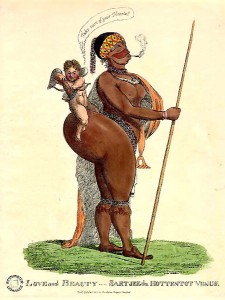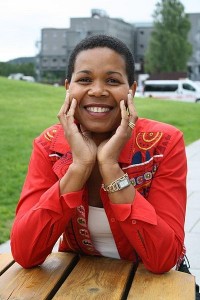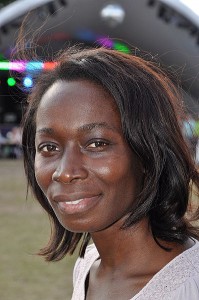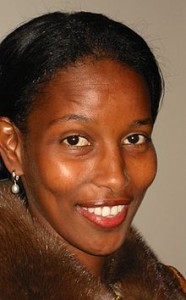Nowadays, it is a common occcurence to witness African-born women having successful careers in Europe. Despite the evident challenges, many of them have also distiguished themselves in politics. Still, it was not so long ago that such success would have seemed impossible. To achieve greatness, these women have often come a long way, both literally and figuratively.
In order to better appreciate the progress made, one needs to think back to the 19th century and consider the image of black women in Europe then. For the purpose of this article, we will only address the story of women from the African diaspora who have been elected to positions of leadership in countries other than the colonial powers that previously ruled their home countries.
A history of racism
The story of the “Hottentot Venus” is symptomatic of the relationship between the West and African women in the last two centuries. Sébastien Hervieu, an Africa correspondent for Le Monde newspaper in France, tells the story of Sarah Baartman from South Africa, better known as the “Hottentot Venus”. In an article published in October 2010 in his blog afriquedusud.blog.lemonde.fr, he reviews [fr] Abdellatif Kechiche's [fr] film about her tragic story, Black Venus:
Au début du XIXème siècle, cette servante est emmenée en Europe et devient un objet de foire en raison de ses attributs physiques proéminents. Certains “scientifiques” utilisent sa présence pour théoriser l'infériorité de la “race noire”. Lorsqu'elle meurt à seulement 25 ans, ses organes génitaux et son cerveau sont placés dans des bocaux de formol, et son squelette et le moulage de son corps sont exposés au musée de l'Homme à Paris. C'est seulement en 2002 que la France accepte de rendre la dépouille de Saartjie Baartman à l'Afrique du Sud, concluant ainsi un long imbroglio juridique et diplomatique
Sarah Baartman died in Paris on 29th September 1815. More than 100 years later, the Khoïkhoï people in South Africa called on Nelson Mandela to demand the restitution of Sarah's remains. The demand was met with the refusal of the French authorities and the scientific community citing the inalienable heritage of science and the state, but France eventually repatriated the body to South Africa where, in accordance with the rites of her people, it was purified and placed on a bed of dried herbs which were set alight.
Norway
Two centuries later, the position of black women in Europe has drastically changed. Amongst others, many have now been elected to political office.
Manuela Ramin-Osmundsen in Norway is one of these women, and one of the most interesting because she shows the contradictions that still exist within some countries. She had to step down from a ministerial post in the Norwegian government just four months into her job. An article on Grioo.com sets out her career [fr]:
Originaire de l’Ile de la Martinique, à 44 ans, Manuela Ramin-Osmundsen a obtenu son poste de ministre de l’Enfance et de la Parité au sein du gouvernement de centre-gauche norvégien le 18 octobre 2007[…] Elle est mariée avec Terje Osmundsen, un homme politique membre du parti conservateur norvégien. Après son mariage, elle a pris la nationalité norvégienne et renoncé à celle de la France. Le pays n’autorisant pas la double nationalité.
In an interview with Patrick Karam from the website fxgpariscaraibe.com in 2008 she explains [fr] some of the things that played in her favour in being appointed and why she stepped down following a controversy over an alleged conflict of interest in the hiring of a political appointee:
En Norvège, il y a obligation de représentation des deux sexes dans les conseils d’administration, 40 % de femmes au minimum. Nous menons aussi une politique pour inciter les hommes à prendre plus de responsabilité dans le foyer pour laisser les femmes entreprendre professionnellement. J’ai travaillé aussi sur l’enfance en danger, les violences, les maltraitances… J’ai travaillé quatre mois sans être critiquée, c’était une expérience réussie. Les critiques sont venues avec la nomination d’une médiatrice. Avec du recul, tout le monde voit que c’est une bagatelle. J’ai cédé au pouvoir de la presse.
Sweden
Nyamko Sabuni [fr] is a former minister in Sweden, originally from the Democratic Republic of Congo. Born in Burundi in 1969, her father fled the country due to persecution. She was elected to the Riksday as a member of the parliament in 2002, and at 37 years old became a Swedish goverment minister from 2006 to 2010. An article published on congopage.com sets out [fr] her progress.
En 1981, à l’âge de 12 ans, elle est arrivée en Suède avec sa mère et trois de ses cinq frères et sœurs. Là, elle a retrouvé son père, un opposant politique plusieurs fois emprisonné au Congo (actuellement République démocratique du Congo), venu dans le pays nordique grâce à Amnesty International.
The Netherlands
The Hirsiali blog presents a profile of Ayaan Hirsi Ali:
Née en Somalie en 1969, excisée à l’âge de 5 ans, Ayaan Hirsi Ali est scolarisée dans un lycée musulman pour filles. Soumise à ses parents, à son clan et à sa religion jusqu’à l’âge de vingt-trois ans, elle profite d’un passage dans sa famille en Allemagne, pour s’enfuir et échapper à un mariage forcé. Réfugiée aux Pays-Bas, elle adopte les valeurs libérales occidentales au point de devenir une jeune députée à La Haye et de s’affirmer athée. Pour avoir travaillé dans les services sociaux du royaume, elle connaît, de l’intérieur, les horreurs tolérées à l’encontre des femmes au nom du multiculturalisme.
A fierce apponent of some of the aspects of Islam and African traditions that go against basic human rights, she founded an NGO whose aims are set out, on her website Ayaan Hirsiali in the following terms:
In response to ongoing abuses of women’s rights, Ayaan Hirsi Ali and her supporters established the AHA Foundation in 2007 to help protect and defend the rights of women in the West from oppression justified by religion and culture.
Italy
The first black person to be elected to the Italian parliament is Mercedes Lourdes Frias from the Dominican Republic, in the Caribbean. This is how she is described [en] on the blogging site Black Women in Europe:
Mercedes Lourdes Frias was born in the Dominican Republic. She was the first black person elected to the Italian Parliament in 2006 where she served through April 2008. She was a member of the Commission on Constitutional Affairs and the Parliamentary Committee on the Implementation of the Control of Schengen Agreement, and the Control and Surveillance on Immigration. She works on anti-racist activities and welcoming immigrants. From 1994 1997 she was a member of the Council of the Federation of Protestant Churches in Italy. In the town of Empoli Ms Frias served a councilor for the environment, rights of citizenship, equal opportunities.
The blog stranieriinitalia.it (foreigners in Italy) gives a brief outline of her career [it]:
Il primo sindaco di colore in Italia ha la camicia verde. Sandra Maria (Sandy) Cane si è aggiudicata con appena 38 voti di scarto la fascia tricolore a Viggiù, cinquemila anime in Valceresio, tra Varesotto e Canton Ticino. Alle sue spalle, una lunga storia di migrazioni. Di Viggiù era originaria la famiglia materna del neosindaco, scalpellini emigrati in Francia, dove durante la seconda guerra mondiale arrivò il padre, un soldato statunitense afroamericano. Il neo sindaco è nata a Springfield, nel Massachussets, nel 1961, ma a dieci anni, dopo la separazione dei genitori, ha seguito la madre nel paesino d’origine.
A past with a long history of migration. The new mayor's family on her mother's side were stone masons, originally from Viggiù, who migrated to France. During the Second World War, her father, an African-American soldier from the United States arrived in France. The new Mayor was born in Springfield, Massachusetts in 1961, but ten years after the separation of her parents she followed her mother back to her home village.
This, according to the blog associazioneumoja.wordpress.com, is how she found herself [it] in politics, with a rather unlikely ideological platform:
Della Lega sono sempre stata sostenitrice, anche se mai vera militante. Quando ero ragazza morivo dal ridere a vedere i loro manifesti, curiosi e di forte impatto. Poi quindici anni fa, più o meno, mi sono avvicinata di più. […] Vedo come «molto americana» anche la Lega, per la richiesta di rispettare rigorosamente la legge, anche per i clandestini. Anche se a Viggiù, precisa, non ci sono problemi di integrazione, nè tantomeno di sicurezza. Tra le priorità, guarda al rilancio turistico del paese, con manifestazioni e attenzione alla cultura.
Despite the marked progress in the inclusion of African women in European politics, they represent isolated cases as, beyond the difficulties they face due to racism or culture and religion, even within their own families and their own societies, they also have to face up to the challenges that all women across the world face [fr]: domestic violence, the challenge of bearing children, marginalisation and under-representation.




